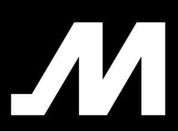Fleet Complete is a Fleet Management Software. Fleet Complete offers Inventory Management, Accident Tracking, Dispatch Management, Driver Management, Fuel Management and many more functionalities.
Some top alternatives to Fleet Complete includes Samsara, Verizon Connect, Azuga Fleet, Motive and Geo-Tracking.
Yes, Fleet Complete provides API.
Yes, Fleet Complete provides a mobile app.
Fleet Complete is located in Ontario, Canada
Fleet Complete offers Quotation Based pricing model
Yes, Fleet Complete can integrate with Quickbooks, Salesforce, Microsoft AzureYou can find more integration for Fleet Complete here
The starting price is not disclosed by Fleet Complete. You can visit Fleet Complete pricing page to get the latest pricing.






















